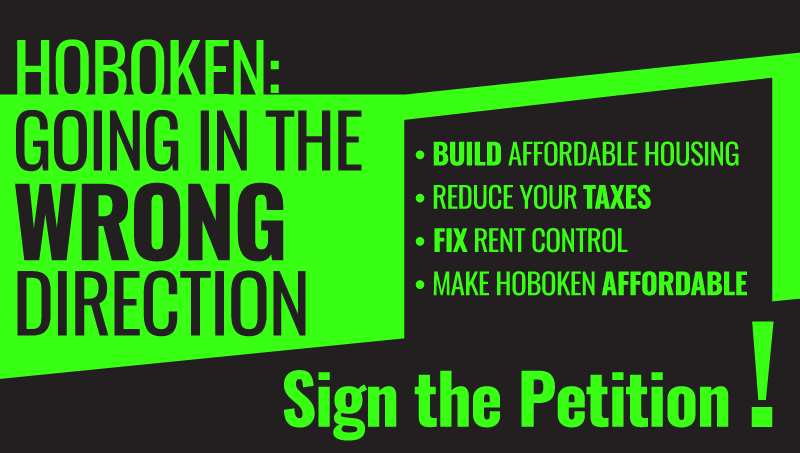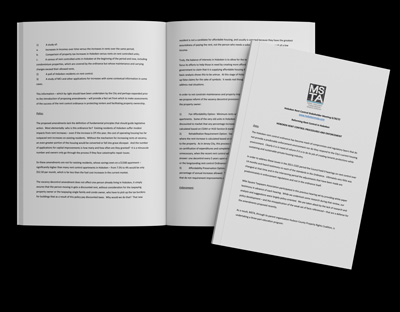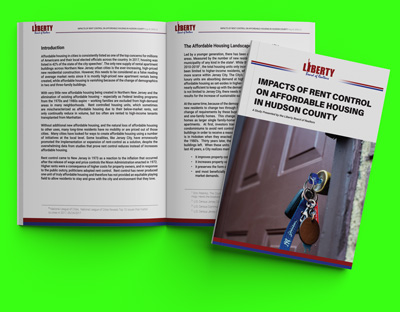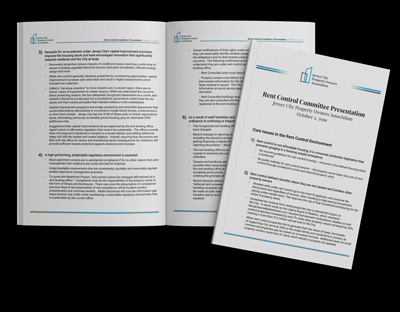TAX RELIEF and AFFORDABLE HOUSING Through RENT CONTROL REFORM
AMEND THE ORDIANCE NOW!!
Hoboken’s Affordable Housing Trust fund has failed to create ONE SINGLE unit of affordable housing. Even the Council admits it.
Now is the time to amend the City’s Rent Control Ordinance to provide TAX RELIEF to residents and ensure that AFFORDABLE HOUSING is built and goes to the people who need it.
SUPPORT THE HOBOKEN HOUSING INITIATIVE! EMAIL US HERE
FACTS:
Rent Control does not provide affordable housing to people who need it – in fact – most new tenants in Hoboken’s rent-controlled units make over $100,000 per year. They get a subsidy at the expense of the taxpayers?
Rent Control Reform REDUCES Property Taxpayer Burden for Homeowners.
Hoboken recently passed an Affordable Housing Plan – this amendment would help create new affordable housing units.
In the last 20 years, the number of rent-controlled units in Hoboken has DECREASED from approximately 12,000 units to 8,000 units. Landlords are selling rental units and buildings to convert to privately owned residences – REDUCING the amount of affordable rent-controlled units.
Condo Owners should not be subject to the Rent Control Ordinance. Hoboken’s Rent Control Board wants to roll back condo rents as far as 1973 rents.
The Rent Leveling Board is disorganized, dysfunctional, and costs the taxpayers hundreds of thousands in legal fees — and has made the City vulnerable to more than $100 million in potential claims.
This amendment specifically mentions and references strong protections for tenants against harassment.
With matching grants and municipal financing, this amendment could build approximately 700 affordable housing units over the next 5 years.
Building affordable housing units, which Hoboken has failed to do, will allow Hoboken Police Officers, Municipal Workers, and other City Employees to live where they work.
The Mayor recently vetoed an amendment to the Rent Control Ordinance passed by the Council that both the Landlords AND the Tenant Advocates agreed on. The City cannot get control over its rent control personnel or Board.
Hoboken’s Current Rent Control Ordinance Provides NO Funding for the Addition of NEW Affordable Housing
Want to Contact Us?
Click Here!
Want to Sign the Petition?
Click Here!
Want to Volunteer?
Click Here!
The Reality of the Rent Control Ordinance in Hoboken
HOBOKEN RENT CONTROL REFERENDUM EXPLAINED
Hoboken Property Owners Announce Rent Control Petition to Reform Rent Control and Fund Affordable Housing

Background and Research:
Contact the Mayor and your City Council Members:
Mayor Ravi Bhalla
Office: (201) 420-2000 ext 1001
EMAIL: rbhalla@hobokennj.gov
Jennifer Giattino
Council President, 6th Ward Council person
Office: 201-420-2000 ext. 2100
Mobile: (201) 780-6779
EMAIL: jengiattino6@gmail.com
James Doyle
VP, Council at Large
Office: 201-420-2000 ext. 2103
Mobile: 201-452-1761
EMAIL: jimdoylehoboken@gmail.com
Emily Jabbour
Council at Large
Mobile: 781-724-6258
EMAIL: hobokenemily@gmail.com
Joe Quintero
Council at Large
Mobile: 201-701-1031
EMAIL: councilmanquintero@gmail.com
Paul Presinzano
1st Ward Council person
Office: 201-420-2000 ext. 2104
Mobile: (201) 424-0401
EMAIL: ppresinzano@hobokennj.gov
Tiffanie Fisher
2nd Ward Council person
Office: 201-420-2000 ext. 2015
Mobile: (201) 208-1674
EMAIL: hoboken2nd@gmail.com
Michael Russo
3rd Ward Council person
Office: (201) 420-2000 x 2106
Mobile: (text is best) 201-401-9687
EMAIL: councilmanrusso@gmail.com
Ruben Ramos Jr.
4th Ward Council person
Office: (201) 420-2000 x 2107
Mobile: 201-401-7947
EMAIL: councilmanramos4@gmail.com
Phil Cohen
5th Ward Council person
Phone: (862) 234-9053
EMAIL: pcohen@hobokennj.gov




